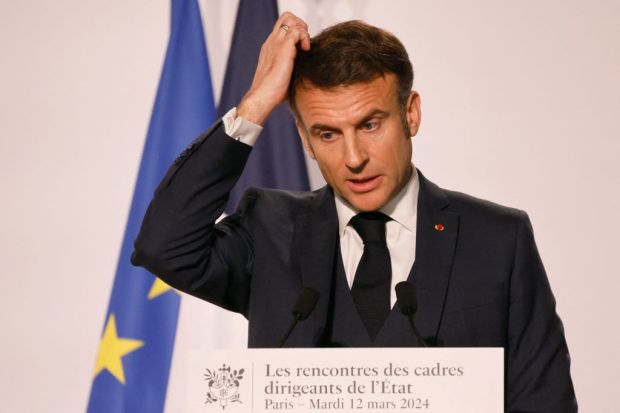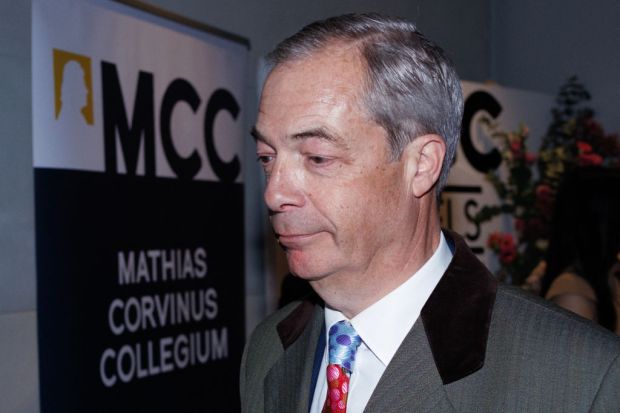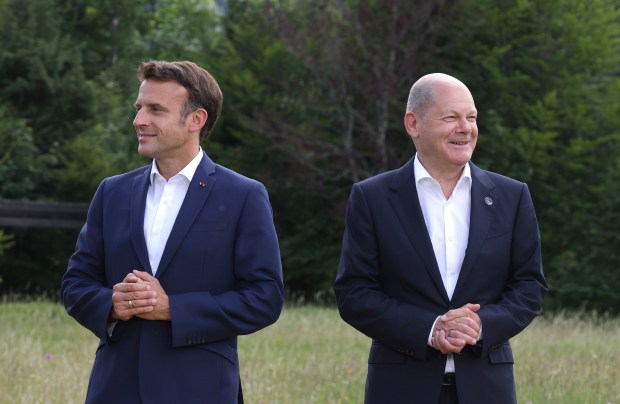First it was the Greens, then the Communists and on Wednesday Jean-Luc Mélenchon bagged the big one, the Socialist party. In announcing an ‘agreement in principle’ between his La France Insoumise (LFI) and the Socialists, Mélenchon became the most powerful figure on the French left and, according to the electorate, the principal adversary of Emmanuel Macron in next month’s legislative elections.
The Socialist party’s National Committee will meet in Paris this evening to examine the fine print of the agreement, but they are expected to endorse what is officially called the New Social and Ecological People’s Union. Not that everyone within the party is happy with the alliance. Several senior figures, many of whom served in Francois Hollande’s government a few years ago, have declared their opposition to the alliance; one, former prime minister Bernard Cazeneuve, quit the party on Wednesday.
The dissidents don’t trust Mélenchon. He says he doesn’t want to take France out of the EU but this is the man who, during the 2017 presidential campaign, drafted a Plan A and a Plan B. The former involved renegotiating certain treaties with the EU. In the event of these talks breaking down, Plan B would be implemented, which would entail scrapping France’s contribution to the EU budget, a return to national currency and the introduction of economic protectionism.
Jean-Christophe Cambadélis, the former National Secretary of the Socialist party, warned earlier in the week that a union with LFI would signal the end of a pro-EU left wing party in France. For a committed Europhile such as himself, this is unconscionable.
In 2013 Cambadélis declared that the Socialist party was ‘totally and profoundly pro-European’; for the political class, perhaps, but not the majority of the left-wing electorate, who eight years earlier had been given the opportunity to vote on the European Constitution.
Mélenchon, then a Socialist senator for the Essonne Department, was one of the most ardent opponents of the Constitution. He travelled across France to explain to people the reasons why, to paraphrase his campaign slogan, ‘For Me, It’s No’.
He produced a short video in which he outlined his objections: the constitution was incompatible with the social and democratic Europe envisioned by the left; of its 448 articles, 311 were economically liberal; French law would become redundant and it would be impossible to challenge the new European regulations for decades to come. ‘Another Europe is possible if we mobilise,’ declared Mélenchon. ‘If we want a Europe that is democratic, which will help us lead better lives, place more importance on respect for the individual rather than commercial competition.’
Mélenchon also urged the French not to be ‘intimidated’ by the dire warnings of disaster emanating from the ‘Yes’ campaign if the referendum was rejected.
Mélenchon was always quietly confident that his side would win. In an interview in April 2005, six weeks before the vote, he informed a local newspaper that the people he had met on the campaign trail had been very attuned to what was at stake in the referendum. ‘The Left’s ‘No’ has become an immense force,’ he explained. ‘What has struck me is how mature, considered and thoughtful it is.’
Mélenchon’s confidence was not misplaced. The ‘No’ vote won, with 54 per cent, but it did them no good. Despite repeated promises that the result would be respected, the EU constitution was repackaged as the Lisbon Treaty and ratified by the French parliament in 2008; on this occasion they avoided asking the electorate their opinion.
Mélenchon has built a new career on this betrayal. He quit the Socialist party in 2008, founding the Left party (and then in 2016 LFI). And he has become as much a thorn to the French political establishment as Nigel Farage was to Britain’s ruling elite, albeit without the latter’s love of capitalism.
At a rally in 2011, Jean-Luc Mélenchon raged against the EU for causing the Eurozone crisis. He demanded an end to free trade, what he called the ‘Europe of Cooperation’, which exploited the workers. He outlined his vision, which encompassed ‘the right to rest, the right to live and not to survive’. It was a world of protectionism, where people worked no more than 35 hours in a week and retired at 60. Keep fighting the good fight, urged Mélenchon, because ‘our time will come’
This faith was strengthened further by Brexit, which Mélenchon saluted as ‘the beginning of the end of an era. The idea of a European Union has been killed by the caste of Eurocrats and the politics of austerity imposed by the German government with the active complicity of two French presidents who, since 2005, have violated the vote of our people’.
Make that three presidents, given the passion that Emmanuel Macron has for the EU.
Mélenchon is a much more awkward opponent for Macron than that other well-known Eurosceptic Marine Le Pen. He’s a far more accomplished politician for a start, a man of real conviction. But above all it won’t be possible for France’s elite to smear Mélenchon the way they did Le Pen, depicting him as a far-right reactionary whose opposition to the EU is rooted in racism.
Mélenchon has waited seventeen years for his revenge, as have millions of voters on the left who still seethe at the dishonesty perpetrated by the political elite in the wake of the referendum. That is why next month’s legislative election is as much a vote on Europe as it is to see who sits in the National Assembly.
Got something to add? Join the discussion and comment below.
Get 10 issues for just $10
Subscribe to The Spectator Australia today for the next 10 magazine issues, plus full online access, for just $10.





















Comments
Don't miss out
Join the conversation with other Spectator Australia readers. Subscribe to leave a comment.
SUBSCRIBEAlready a subscriber? Log in